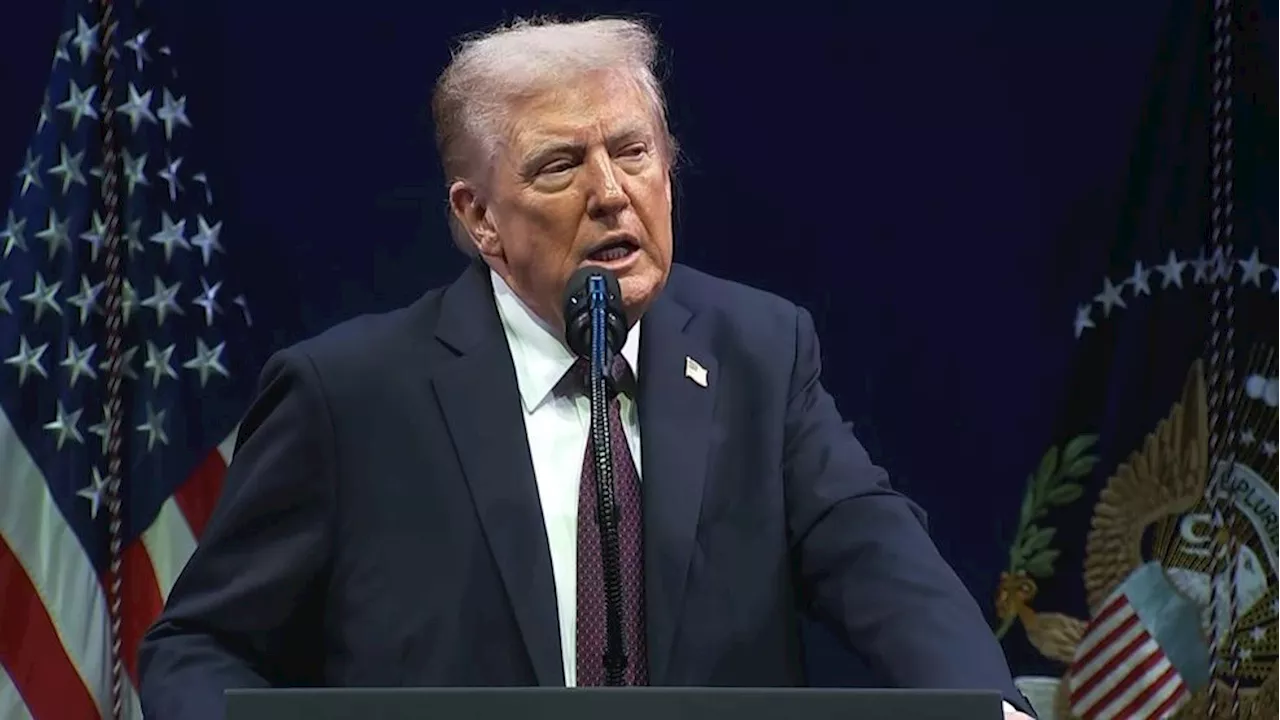Politics
Trump Navigates Tensions with Qatar Following Israeli Strikes

President Donald Trump is attempting to manage diplomatic tensions with Qatar after Israel’s recent airstrike targeting Hamas officials on Qatari soil. The attack, which occurred on July 3, 2023, has drawn significant attention due to its implications for U.S. foreign relations, particularly with its allies in the Middle East.
In a statement made on July 4, Trump sought to clarify the United States’ position regarding the Israeli actions. While he refrained from outright condemning Israel, he emphasized the importance of maintaining strong relationships with all U.S. allies in the region. Trump’s comments reflect a careful approach as he balances support for Israel with the need to reassure Qatar, a key partner in the fight against terrorism.
Regional Reactions and Implications
The airstrike has led to heightened tensions between Israel and Hamas, as well as concerns within Qatar regarding its security and diplomatic standing. Qatari officials expressed their displeasure at the incident, calling for dialogue rather than military action. The government has historically played a mediating role in conflicts involving Hamas, which complicates the situation further.
Trump’s administration is under pressure to respond effectively to the fallout from the strike. The U.S. has long supported Israel’s right to defend itself against threats, but the decision to carry out an operation on Qatari territory raises questions about the acceptable parameters of such actions. Analysts suggest that this incident could strain U.S. relations with Qatar, which hosts a significant U.S. military base.
Strategic Considerations for the U.S.
The United States has vested interests in maintaining stability in the Gulf region, particularly with its military presence in Qatar. This base is crucial for U.S. operations across the Middle East, and any diplomatic rifts could have far-reaching consequences. Trump’s response will likely consider not only immediate diplomatic relations but also broader strategic interests in the region.
As the situation evolves, it remains to be seen how the U.S. administration will navigate the complexities of Middle Eastern geopolitics. Trump’s balancing act highlights the intricate web of alliances and enmities that characterize the region, with potential implications for U.S. foreign policy moving forward.
In summary, Trump’s approach aims to mitigate the fallout from Israel’s actions while preserving the delicate ties with Qatar and ensuring the U.S. maintains its strategic foothold in the Middle East. The coming weeks will be critical in determining how these relationships will be shaped in light of recent events.
-

 Lifestyle4 months ago
Lifestyle4 months agoLibraries Challenge Rising E-Book Costs Amid Growing Demand
-

 Sports3 months ago
Sports3 months agoTyreek Hill Responds to Tua Tagovailoa’s Comments on Team Dynamics
-

 Sports3 months ago
Sports3 months agoLiverpool Secures Agreement to Sign Young Striker Will Wright
-

 Lifestyle3 months ago
Lifestyle3 months agoSave Your Split Tomatoes: Expert Tips for Gardeners
-

 Lifestyle3 months ago
Lifestyle3 months agoPrincess Beatrice’s Daughter Athena Joins Siblings at London Parade
-

 World3 months ago
World3 months agoWinter Storms Lash New South Wales with Snow, Flood Risks
-

 Science4 months ago
Science4 months agoTrump Administration Moves to Repeal Key Climate Regulation
-

 Science3 months ago
Science3 months agoSan Francisco Hosts Unique Contest to Identify “Performative Males”
-

 Business4 months ago
Business4 months agoSoFi Technologies Shares Slip 2% Following Insider Stock Sale
-

 Science4 months ago
Science4 months agoNew Tool Reveals Link Between Horse Coat Condition and Parasites
-

 Sports4 months ago
Sports4 months agoElon Musk Sculpture Travels From Utah to Yosemite National Park
-

 Science4 months ago
Science4 months agoNew Study Confirms Humans Transported Stonehenge Bluestones








